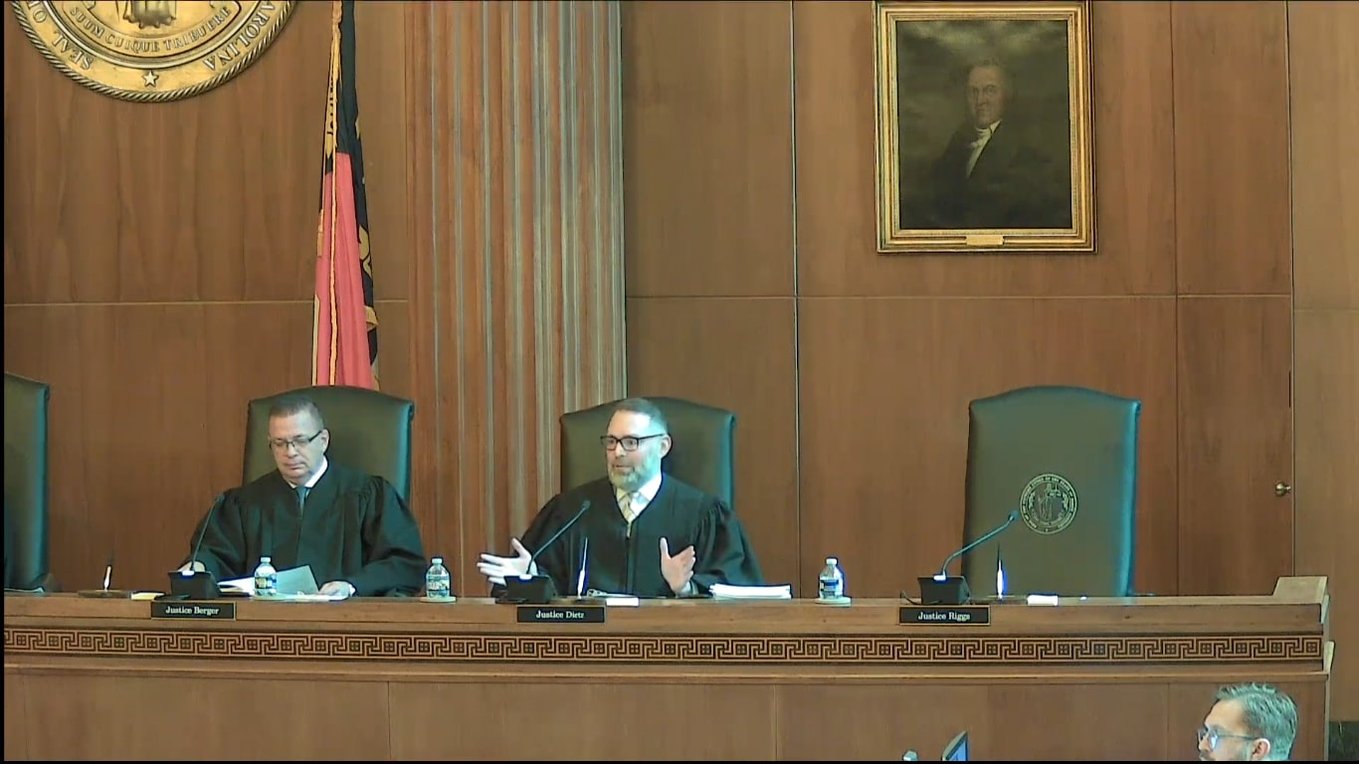RALEIGH, N.C. (CN) — The North Carolina Supreme Court ruled unanimously Thursday that voters who were falsely accused of voting fraud cannot sue attorneys who provided false information to their accuser.
The ruling comes as a win for former governor Pat McCrory, whose legal representatives assisted in filing hundreds of voter fraud complaints after he lost his reelection campaign in 2016. The plaintiffs, four voters who were accused of committing voter fraud, will not be allowed to sue those attorneys for libel, the court decided.
The plaintiffs claimed that they were defamed and subjected to national media attention and public embarrassment after McCrory’s camp encouraged a local voter to file an election protest saying they had either voted in multiple states or were prohibited from voting by felony status.
A lower court initially ruled that while the voter who submitted the election protests was shielded from liability, defendants who provided information but did not file the reports themselves could be sued, because they were not actively participating in a “quasi-judicial election protest proceeding.”
In his opinion, Chief Justice Paul Newby said that absolute privilege “broadly protects” individuals involved in an election protest from defamation claims, and the participation requirement established by the state appeals court was baseless.
“The public has an interest in judicial and quasi-judicial bodies arriving at the truth in matters brought before them and in the ‘due administration of justice.’ … To that end, the absolute privilege must apply broadly to anyone involved in any aspect of an election protest, even if they did not actually ‘participate’ as a party, counsel, witness or the like at a subsequent proceeding,” Newby wrote, describing the attorney defendants as “inextricably intertwined” in the process of filing the election protests.
The broad application of absolute privilege protection is “critical,” Newby said, in fast-paced proceedings like election protests, where the Board of Elections is trying to rapidly report all votes on a timeline that “does not lend itself to exhaustive discovery and absolute precision.”
Before the state's Supreme Court, Pressly Millen, a lawyer for the plaintiffs, argued that McCrory’s lawyers were attempting to avoid directly participating in the election proceedings by identifying Republicans in each county to submit election protests under their own names. Because they didn’t file the reports themselves, they do not qualify for absolute immunity, he argued, pointing out that the lawyers didn’t attempt to be at the Board of Elections’ hearings to present evidence for the protests.
“This privilege does not exist to permit libel," Millen said in court. "The privilege exists to permit the fair and efficient administration of justice."
Representation for the defendants contested that the defendants were participating in official judicial proceedings, which grants them absolute privilege and protects them from civil liability.
The defendants’ accusations of fraud were filled with errors, and were largely unfounded. In a study on the challenged ballots conducted by Democracy North Carolina, 95% were found to have been legally filed. All of the protests filed against the plaintiffs were withdrawn, or dismissed due to lack of evidence.
The plaintiffs have already been vindicated, wrote Newby, and allowing the defendants to be subject to liability could create a fear of retribution that would prevent concerned citizens from filing protests in future elections.
“In light of the public’s strong interest in ensuring that all individuals can fully and freely collaborate and communicate in the course of an election protest, we hold that the absolute privilege’s protection extends to everyone involved in that process, not just those who act as party, counsel, or witness,” he wrote.
Five Republican justices decided the case, as the two Democrat justices, Associate Justices Anita Earls and Allison Riggs, recused themselves for having represented the plaintiffs in the past.
The case will now be sent back to the state Court of Appeals, then sent to the trial court to be dismissed.
Subscribe to Closing Arguments
Sign up for new weekly newsletter Closing Arguments to get the latest about ongoing trials, major litigation and hot cases and rulings in courthouses around the U.S. and the world.









